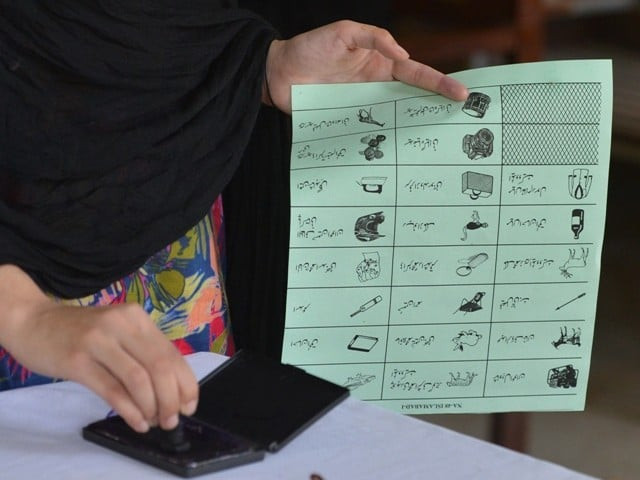PTI attracted highest female voter support in 2024 elections, FAFEN reveals
FAFEN report reveals significant gender-based voting divergence across communities in the 2024 general elections.

A new report released by the Free and Fair Election Network (FAFEN) on Sunday highlights a significant gender-based divergence in voting patterns across communities in the 2024 general elections.
The study found that in 18% of communities, women voters chose different candidates than their male counterparts in National Assembly constituencies, despite voting in male and female-designated polling stations within the same jurisdictions.
The report also shed light on party-specific trends: in the 3,884 communities where women’s choices differed from men’s, Pakistan Tehreek-e-Insaf (PTI) garnered more support from women in 1,260 communities, followed by Pakistan Muslim League Nawaz (PML-N) in 1,027 communities and Pakistan Peoples Party Parliamentarians (PPPP) in 694.
Regionally, PTI found strong backing from women across the country, PML-N remained dominant in Punjab, and PPPP enjoyed significant support in Sindh.
In terms of constituency outcomes, women’s voting preferences in 37 constituencies were pivotal, with the largest proportion of female voters not supporting the winning candidate.
In contrast, in 226 constituencies, female voters largely supported the victorious candidate. Notably, in seven constituencies—such as NA-43 Tank-cum-Dera Ismail Khan and NA-49 Attock-I—women’s votes determined the election result, with PTI benefiting from substantial leads in female polling stations.
FAFEN’s report, which compares results from 42,804 male and female polling stations across 21,188 communities, showed that in the majority of areas—82%—male and female voters selected the same candidate.
The report also revealed regional and urban-rural disparities in voter preferences, with urban areas exhibiting more differences in voting choices compared to rural regions.
Among regions, Islamabad had the highest proportion of communities where male and female voters disagreed on the winning candidate, with 37% of electoral communities showing a discrepancy. Balochistan followed with 32%, while Sindh and Punjab had 19% and 18%, respectively. Khyber-Pakhtunkhwa recorded the lowest at 13%.






1724319076-0/Untitled-design-(5)1724319076-0-208x130.webp)












COMMENTS
Comments are moderated and generally will be posted if they are on-topic and not abusive.
For more information, please see our Comments FAQ